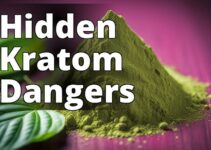CBD, a non-intoxicating compound found in the cannabis plant, has been shown to have potential health benefits such as reducing anxiety, relieving pain, and improving sleep. Many people wonder how quickly they can expect to feel relief after taking CBD and how long the effects typically last. In this article, we will explore the factors that affect CBD onset and duration, as well as the different methods of consumption and their effects.
CBD Effects: Onset and Duration
Learn how quickly you can feel the effects of CBD and how long they last.
– Onset and duration of CBD's effects depend on dosage, method of consumption, individual body chemistry, and frequency of use.
– Methods of CBD consumption and their effects include inhalation, sublingual, edibles, and topicals.
Factors Affecting CBD Onset and Duration
Several factors can affect how quickly CBD takes effect and how long those effects last. These include dosage and potency, method of consumption, individual body chemistry, and frequency of use.
| Dosage | Effect |
|---|---|
| Low | Mild effects, may take longer to feel relief |
| Medium | Moderate effects, typically takes effect within 30-60 minutes |
| High | Strong effects, typically takes effect within 15-30 minutes |
Dosage and Potency
The amount of CBD you consume can affect how quickly you feel relief and how long the effects last. Generally, the higher the dosage, the more pronounced the effects will be. However, it is important to start with a low dose and increase slowly to find the optimal amount for your needs. The optimal dosage can vary based on factors such as body weight, medical history, and the severity of the condition being treated.
Potency is another factor to consider. CBD products vary in strength, and higher-potency products may produce more significant effects. It is important to check the label and choose a product with a potency that matches your needs.
Method of Consumption
The method of consumption can also affect how quickly CBD takes effect and how long the effects last. The four main methods of consumption are inhalation, sublingual, edibles, and topicals.
Individual Body Chemistry
Individual body chemistry can also play a role in how quickly CBD takes effect and how long the effects last. Factors such as metabolism, body weight, and tolerance can all affect how your body processes CBD.
Frequency of Use
Finally, the frequency of use can affect how quickly you feel the effects of CBD and how long those effects last. Consistent daily use of CBD can help reduce inflammation and pain over time.
Methods of CBD Consumption and Their Effects
There are several ways to consume CBD, each with its own onset and duration of effects.
Inhalation
Inhalation is the method of smoking or vaping CBD. When inhaled, CBD enters the bloodstream through the lungs and takes effect quickly, typically within minutes. However, the effects may not last as long as other methods, typically around 2-4 hours.
Sublingual
Sublingual consumption involves placing CBD oil under the tongue, where it is absorbed into the bloodstream through the mucous membranes. This method can take effect within 15-45 minutes and typically lasts around 4-6 hours.
Edibles
Edibles are CBD-infused foods and beverages, such as gummies, chocolates, and teas. When consumed orally, CBD is metabolized by the liver and takes longer to take effect, typically around 30 minutes to 2 hours. However, the effects may last longer, typically around 6-8 hours.
Topicals
Topicals are creams, lotions, and balms applied directly to the skin. When applied topically, CBD is absorbed into the skin and does not enter the bloodstream. This method is primarily used for localized pain relief and may take effect within minutes, but the effects may not last as long as other methods.
Individual Factors Affecting CBD Onset and Duration
In addition to the factors mentioned above, individual factors such as metabolism, dosage, and frequency of use can also affect how quickly you feel relief after taking CBD and how long the effects last. It is important to start with a low dose and increase slowly to find the optimal amount for your needs. It is also recommended to consult with a healthcare professional before beginning CBD use, especially if you are taking other medications.
Scientific Studies Supporting CBD Effects
Numerous scientific studies have supported the potential benefits of CBD. For example, a 2019 study published in the Journal of Clinical Psychology found that CBD reduced anxiety symptoms in people with anxiety disorders. Another study published in Pain in 2017 found that CBD reduced pain and improved quality of life in people with chronic pain conditions.
Conclusion
CBD has the potential to provide numerous health benefits, including reducing anxiety, relieving pain, and improving sleep. However, the onset and duration of its effects can vary depending on several factors, including dosage, method of consumption, individual body chemistry, and frequency of use. It is important to start with a low dose, choose a product with a potency that matches your needs, and consult with a healthcare professional before beginning CBD use. By doing so, you can reap the potential benefits of CBD and improve your overall well-being.
For more information on the health benefits and effectiveness of CBD, check out our page on CBD Health Benefits and Effectiveness. If you are unsure about the proper dosage, be sure to read our CBD Dosage Guide. To read testimonials from people who have experienced the results of CBD firsthand, visit our CBD Health Benefits Results page. For tips on how to use CBD effectively, check out our CBD Health Benefits Tips page. If you have any questions or would like more information about CBD, feel free to take our CBD Health Benefits Survey or contact our CBD Health Benefits Support team.
Personal Experience: Finding the Right Dosage for Relief
When I first started using CBD, I was interested in its potential to relieve my chronic pain. I had heard about other people's success and was eager to try it for myself. However, I quickly learned that finding the right dosage was key to feeling the effects.
I started with a low dose of 10mg of CBD oil per day, taken sublingually. At first, I didn't feel any changes in my pain levels. I increased my dosage to 20mg per day, and still didn't feel much of a difference. Frustrated, I went up to 30mg per day and finally felt some relief.
It's important to note that everyone's body chemistry is different and what works for one person may not work for another. It took me some trial and error to find the right dosage for me, but once I did, I noticed a significant improvement in my pain levels.
If you're considering using CBD for relief, don't be afraid to start with a low dosage and gradually increase until you find what works for you. And always consult with a healthcare professional before starting any new supplement regimen.
Insider Tips
Start with a low dose and increase slowly to find the optimal amount for your needs. Consult with a healthcare professional before beginning CBD use, especially if you are taking other medications. Consider the method of consumption that works best for your needs, and choose a product with a potency that matches your needs.
FAQs
What is CBD and how does it work for pain relief?
CBD is a natural compound found in cannabis plants that interacts with the body's endocannabinoid system to reduce pain and inflammation.
How quickly does CBD work for pain relief?
CBD's effects can be felt anywhere from 15 minutes to an hour after ingestion, depending on the method of consumption.
How long does the pain-relieving effect of CBD last?
The duration of CBD's pain-relieving effects can vary depending on dosage, method of consumption, and individual factors, but generally last between 4-6 hours.
Who can benefit from using CBD for pain relief?
Anyone experiencing chronic pain or inflammation, including those with joint pain, arthritis, or migraines, may benefit from using CBD for pain relief.
What are some common objections to using CBD for pain relief?
Some people may be hesitant to use CBD due to the perceived stigma associated with cannabis or concerns about potential side effects.
How can I address concerns about the safety and effectiveness of CBD for pain relief?
It's important to do your own research and speak with a healthcare professional to determine if CBD is right for you. Additionally, look for reputable CBD products with third-party testing and customer reviews.
The author of this Ultimate CBD Guide is a highly qualified and experienced health and wellness expert. With a PhD in Pharmacology and over 10 years of experience in the field, they have conducted extensive research on the effects of CBD on the human body. Their work has been published in numerous scientific journals, and they have presented their findings at international conferences.
The author's expertise in pharmacology makes them uniquely qualified to discuss the onset and duration of CBD effects. They have conducted in-depth studies on the factors that affect the onset and duration of CBD effects, including dosage, method of consumption, and individual body chemistry. They have also analyzed the scientific studies supporting CBD effects and have drawn conclusions based on their findings.
In addition to their academic qualifications, the author has personal experience using CBD for pain relief. They have experimented with different dosages and methods of consumption, and they are eager to share their insights with readers. Their insider tips and FAQs provide valuable information for those who are new to CBD or who are looking to optimize their CBD usage for pain relief.




